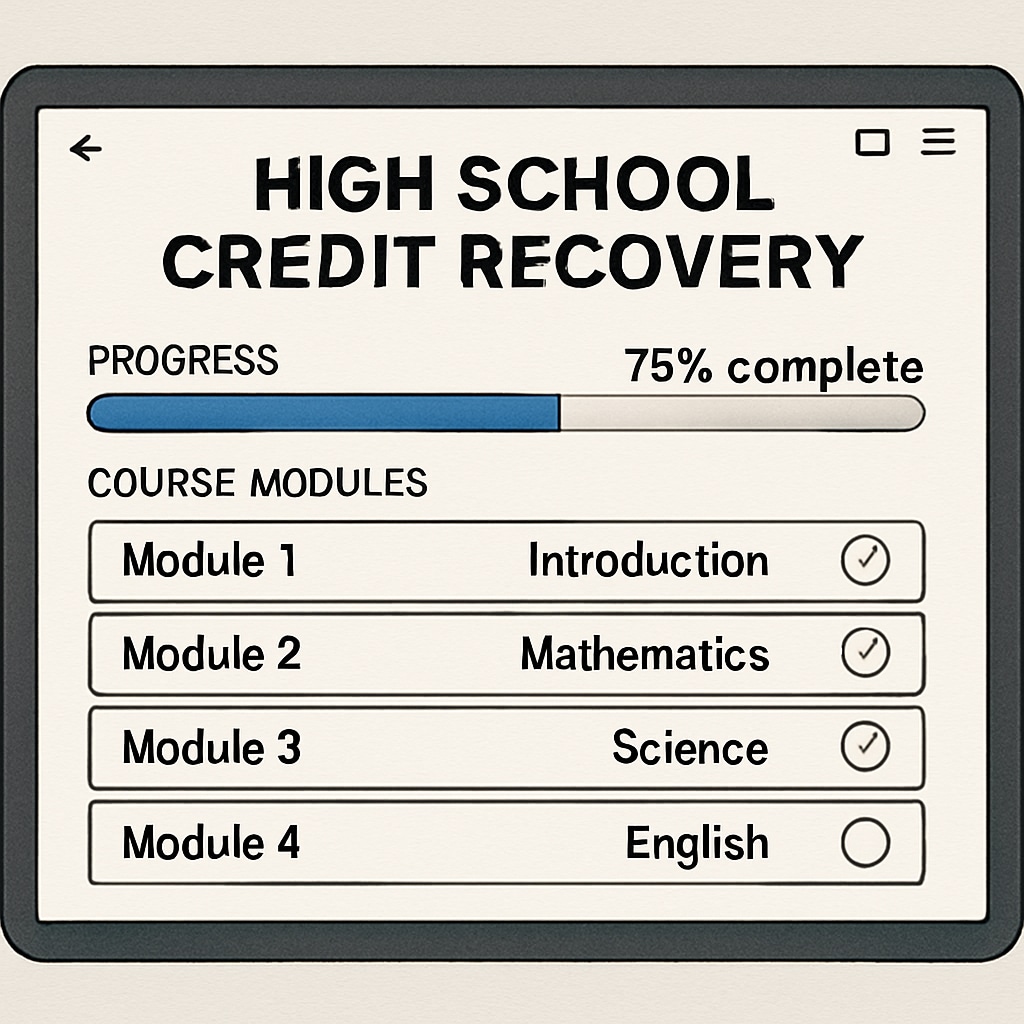Facing credit deficiencies in high school can be a disheartening experience, especially for students with ADHD (Attention Deficit Hyperactivity Disorder) who already face unique challenges in their academic journeys. Combined with external factors like family struggles, the road to timely graduation may seem insurmountable. However, with the right strategies, including personalized learning plans, diverse credit recovery options, and robust support systems, students can find hope and solutions to overcome these obstacles and stay on track toward graduation.

Understanding the Impact of ADHD on Credit Recovery
ADHD is a neurodevelopmental disorder that affects focus, impulse control, and time management. For high school students, these symptoms often translate into missed assignments, difficulty concentrating during lessons, and challenges in meeting academic deadlines. As a result, students may fall behind, leading to credit deficiencies. Without intervention, these challenges can accumulate, creating a ripple effect on their overall high school experience and future opportunities.
In addition to ADHD, other factors such as family instability or limited access to resources can exacerbate the issue. For example, students dealing with financial hardships or emotional stress may struggle to prioritize academics, further jeopardizing their chances of earning required credits. According to Britannica, ADHD often requires tailored educational strategies to meet the needs of affected individuals, making a one-size-fits-all approach to credit recovery ineffective.
Exploring Flexible Credit Recovery Options
Fortunately, many schools and educational systems now offer flexible pathways to address credit deficiencies. These options cater to diverse learning styles and help students regain lost ground. Here are some effective strategies:
- Online Credit Recovery Programs: Platforms like Edgenuity or Apex Learning allow students to retake courses at their own pace, providing flexibility for those with ADHD who may need extra time to focus.
- Summer School: Intensive sessions during summer break can help students earn missing credits while maintaining a structured schedule.
- Dual Enrollment: Partnering with community colleges enables students to earn both high school and college credits, motivating them with advanced coursework.
- Project-Based Learning: Hands-on projects align with real-world applications, engaging ADHD students in a practical and interactive manner.
Each of these approaches can be tailored to the student’s needs, ensuring they remain engaged and motivated throughout the credit recovery process.

Creating a Personalized Learning Plan
One of the most effective ways to address credit deficiencies for ADHD students is through a Personalized Learning Plan (PLP). This plan involves collaboration between the student, parents, teachers, and counselors to design a roadmap tailored to the student’s strengths and challenges. Key components of a PLP include:
- Identifying Learning Preferences: Understanding whether the student learns better through visual aids, hands-on activities, or auditory methods helps shape the curriculum.
- Setting Realistic Goals: Breaking down large tasks into smaller, manageable milestones makes the overall process less overwhelming.
- Incorporating Regular Check-Ins: Frequent meetings with counselors or mentors ensure the student stays on track and feels supported.
According to Wikipedia, similar frameworks like Individualized Education Programs (IEPs) have proven beneficial for students with ADHD, highlighting the importance of customized approaches.
Building a Supportive System for ADHD Students
While credit recovery programs and personalized plans lay the foundation, a strong support system is crucial for long-term success. Schools can implement the following strategies to create a nurturing environment for ADHD students:
- Peer Mentorship: Pairing students with older peers who have successfully navigated similar challenges provides inspiration and guidance.
- Teacher Training: Equipping educators with strategies to engage ADHD students ensures a more inclusive classroom experience.
- Parental Involvement: Encouraging parents to stay involved in their child’s academic journey fosters accountability and emotional support.
- Access to Counseling Services: Providing mental health resources helps students manage stress and develop coping mechanisms.
By creating a network of support, schools can help students with ADHD not only recover credits but also build the skills and confidence needed for future success.
In conclusion, while credit deficiencies in high school can pose significant challenges for ADHD students, they are far from insurmountable. Through flexible credit recovery options, personalized learning plans, and robust support systems, students can regain their footing and achieve timely graduation. With the right resources and encouragement, every student has the potential to succeed.
Readability guidance: This article uses short paragraphs and lists to enhance clarity. It includes transition words like “however,” “in addition,” and “as a result” to maintain a logical flow. Passive voice is minimized, and technical terms like ADHD are briefly explained for accessibility.


